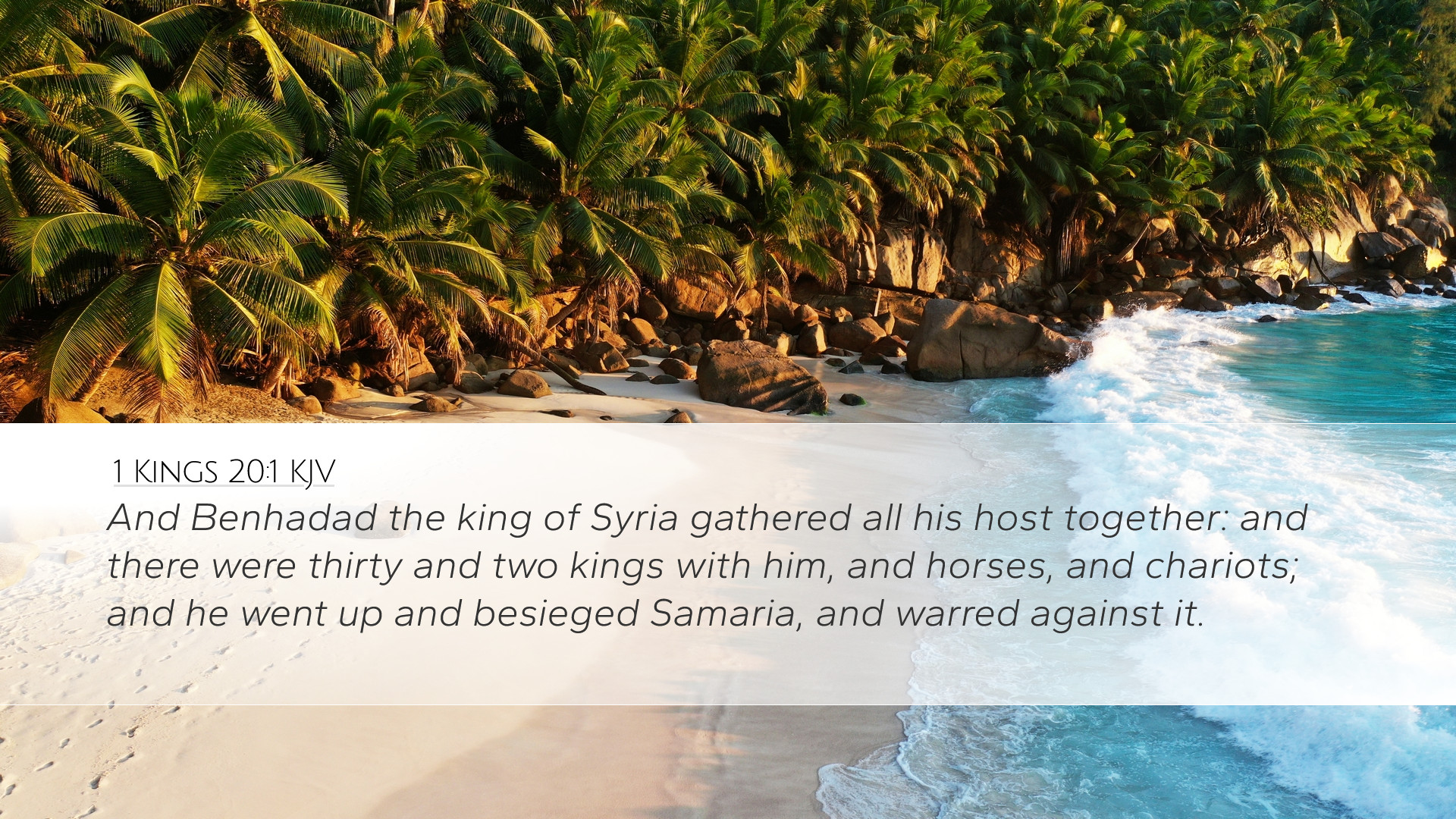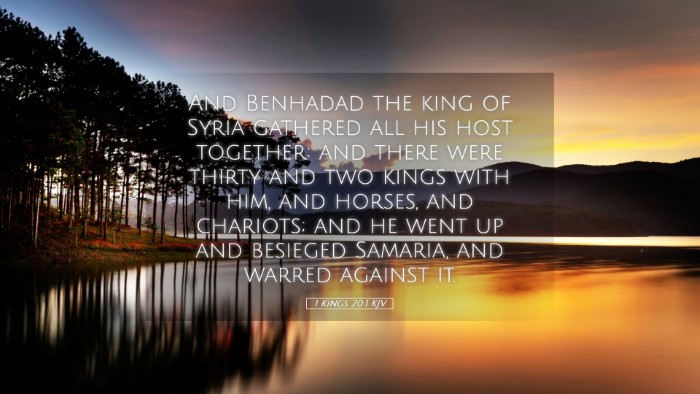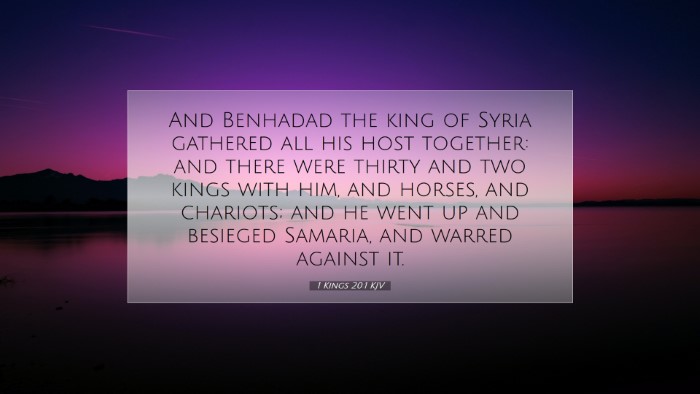Commentary on 1 Kings 20:1
Verse: "And Ben-hadad the king of Syria gathered all his host together: and there were thirty and two kings with him, and horses, and chariots: and he went up and besieged Samaria, and fought against it." (1 Kings 20:1)
Introduction
The narrative in 1 Kings 20:1 marks a significant event in the history of Israel, reflecting the ongoing tensions between the northern kingdom and foreign powers. This verse sets the stage for God's intervention through the prophet Elijah and presents the themes of divine sovereignty, conflict, and faith in the face of adversity.
Context and Background
The historical context of this passage reveals the political landscape of Israel during the reign of Ahab. Ahab, a king marked by his conflicts with the prophets of Yahweh and his embrace of Baal worship, faces external threats from Ben-hadad, the king of Syria. The military might demonstrated by Ben-hadad, bolstered by the alliance of thirty-two kings, underscores a significant challenge to Ahab’s rule.
Analysis from Public Domain Commentators
-
Matthew Henry: Henry emphasizes the security that comes from leaning upon God amidst external pressures. He notes that Ahab's situation is desperate, yet it serves as a backdrop for God's providence. Henry illustrates how Ben-hadad's coalition captures the pomp and power of earthly kings while contrasting it with the ultimate authority of the God of Israel.
-
Albert Barnes: Barnes points out the strategic importance of Samaria as the capital of Israel. He highlights the siege as a tactical maneuver, demonstrating not just the military might but also the ambition of Ben-hadad. Barnes also reflects upon the symbolic nature of coalition warfare, which serves to serve as a foreshadowing of God's victory over collective powers that oppose Him.
-
Adam Clarke: Clarke offers a linguistic and historical analysis of the terms used in the verse. He delves into the implications of having "thirty-two kings" joining Ben-hadad, shedding light on the seriousness of the threat against Israel. Clarke also references the significance of the geographic and spiritual landscape during Ahab's reign, presenting the challenges of maintaining faith in God amidst overwhelming odds.
Theological Insights
As we examine 1 Kings 20:1, several theological themes emerge that resonate with contemporary faith understandings:
-
Divine Sovereignty: The passage highlights God's sovereignty over nations and kings. Despite the force of ben-hadad's armies, God's will ultimately prevails. This is a powerful reminder of the omnipotence of God, who can intervene in history for His purposes.
-
Faith in Crisis: Ahab's predicament mirrors the crises faced by believers today. The pressure of external adversities, whether personal or communal, can challenge one’s faith. The narrative encourages steadfastness and reliance on God's promises, even when the odds appear insurmountable.
-
God's Instrumentation: Through the rise of Ben-hadad and his coalition, God orchestrates the circumstances that will lead to both judgement on Ahab’s idolatry and deliverance for His people through subsequent prophetic ministry.
Practical Applications
The lessons from 1 Kings 20:1 extend beyond historical analysis. For pastors, students, and theologians, this passage invites reflection on several practical applications:
-
Courage in Leadership: Leaders must be prepared to face opposition and must lean on God for wisdom and strength as they guide their communities.
-
Call to Intercession: Just as God raises prophets to intercede on behalf of His people, those in ministry should embrace their role as intercessors, seeking God’s intervention in times of distress.
-
Encouragement in Collective Struggles: Even in the face of great adversity, this passage reassures believers that God remembers His people and is actively involved in their struggles. Collective prayer and action in the face of challenges can lead to breakthroughs.
Conclusion
In summary, 1 Kings 20:1 serves as a poignant reminder of the conflicts faced by God’s people and the assurance that He remains sovereign even amid turmoil. The insights shared by Matthew Henry, Albert Barnes, and Adam Clarke invite deeper reflection and provide a multi-faceted understanding of the text. This passage not only recounts a historical siege but also offers a lens through which we can view God's continual work in our lives today.


